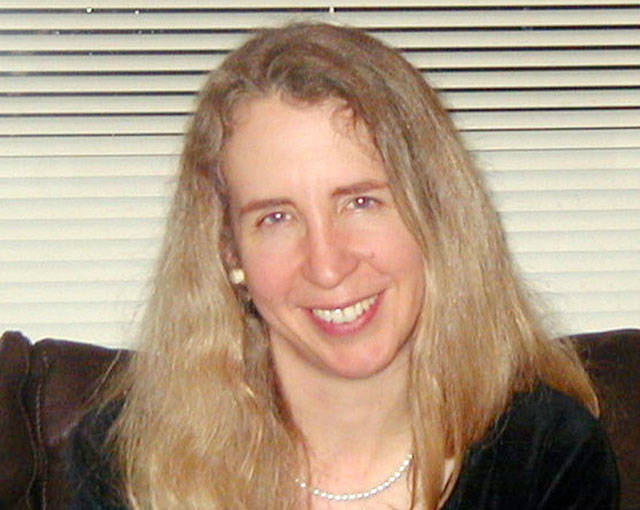The Puget Sound Energy compressed liquid natural gas (LNG) plant in Tacoma has received its final construction permit. The plan is rife with local issues regarding plant safety in a dense urban area (Vashon is in the projected blast zone in event of explosion), violation of Puyallup tribal rights, and false narratives from PSE regarding the cost and usefulness to ratepayers and the maritime industry.
But the full story is not just a local story. It is no more a local story than the Camp fire in California, or the wildfires of Australia and the Amazon, the melting ice in the Arctic, or extreme droughts or storms anywhere. The PSE LNG plant is the story of “business as usual” despite all indications that “business as usual” will destroy the fundamental systems upon which we all survive on planet Earth.
PSE is a Canadian-owned, profit-based consortium and its CEO has also served as chair of the natural gas trade association. The PSE LNG plant is yet another example of corporate capitalism attempting to rationalize the profit motive as consistent with the interests of humanity and the environment. This story is what got us here over the last several hundred years, and is not what will get us beyond the worst threats of climate disruption now.
LNG is not a transition fuel to a cleaner economy. Methane is up to 87 times more potent a greenhouse gas than carbon dioxide. Scientists estimate it would only require a 3% leakage rate of fracked methane along the supply and distribution chains to make its effects worse than coal. The real estimated leakage rates are being measured far higher. LNG is misnamed “natural” once mined. It is sourced in Washington state by hydraulic fracking in Canada, a process that contaminates water systems, despoils land, introduces dangerous chemicals into the environment, increases earthquake risk and has been linked to numerous public health effects.
The truth is we cannot afford to exhaust the fossil fuels in current reservoirs and stay within the Paris Climate Accord’s goals of limiting global warming to two degrees centigrade. Fracking and tar sands extractions have no role in the mitigation of climate disruption.
Building a huge tank of compressed natural gas within a densely populated urban area is definitely a potential public health risk. Whatever the debated specific risk calculations, it is simply a completely unnecessary danger to the public. PSE ratepayers will pay for some 43% of the plant costs while receiving an estimated 2% of the available energy. PSE is filing for further rate hikes. The maritime industry, including TOTE, are already using low sulfur emission fuels, and the future of shipping, like all transportation, is in renewables, not natural gas. Who is really winning in this deal?
The Green New Deal strives to realize the connections between social justice and environmental justice and create an economy based on environmentally sustainable practices that serve the best interests of both the planet and the people. The cost of renewables is steadily decreasing while the technology and potential are steadily increasing. Coal and natural gas will be resurrected only as economic dinosaurs this time around. We don’t need the PSE LNG plant to create jobs. We need the Green New Deal to create living-wage jobs in renewables contributing to the future of our world.
Last year had the highest level of fossil fuel emissions ever recorded and was the second warmest year of the warmest decade on record. The fossil fuel industry is now essentially a rogue industry, with enormous political clout, paying for political control through the unleashed freedom granted by the U.S. Supreme Court in Citizens United v. Federal Election Commission in 2010. Our youth are rising up around the world demanding action and we must make the relevant connections to act effectively.
Elemental to social justice is recognizing the rights of historically oppressed groups under the “business as usual” story of the last several hundred years. The Puyallup tribe has legitimate claims and our state government and agencies so far have failed to protect those rights as related to the PSE LNG plant. This too is not a narrative we can afford in building a new and sustainable world. Around the world, it is indigenous peoples often leading the struggle against environmental destruction on the front lines. We cannot separate environmental and social justice as both the plunder of peoples and the natural world are the intertwined outcomes of the mechanisms of an extractive and exploitative economic system.
The fight to stop the PSE LNG plant is not over, despite the setbacks and the combined efforts of many activists and the Puyallup tribe over recent years. Two lawsuits have been filed since the final permit was granted, one by the Puyallup tribes and one jointly from the Sierra Club and Advocates for a Cleaner Tacoma. There will be further public activism. If you are interested in learning more or joining the effort, please check out the Vashon Climate Action Facebook page, or contact Suzanneggreenberg@gmail.com and sign up for email alerts.
Maia Syfers is a member of the Vashon Climate Action Group.



